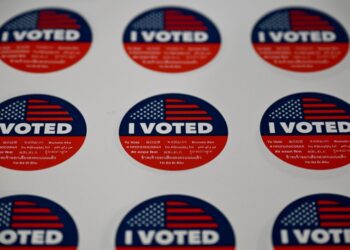House Republicans last year were the least unified party bloc on legislation in more than four decades, CQ Roll Call’s annual Vote Studies analysis of congressional data found.
And that’s the case even without the multiple ballots it took to pick a speaker at two different points in the year, though those fights were certainly symptomatic.
The data show Republicans had only a 63.7 percent success rate on “party unity votes” or roll calls on bills, amendments and resolutions in which majorities of the two parties were on opposite sides of roll call votes. The metric ignores votes where both parties were overwhelmingly for or against a bill to identify cases where a member’s vote had the most potential to tip the scales one way or another.
The last time a majority party lost more unity votes was when Democrats presided in 1982, the second year of President Ronald Reagan’s first term, and prevailed just 63.5 percent of the time.
‘Stymied’ by hard-liners
There are parallels between 1982 and 2023, notes Princeton University politics professor Frances Lee. In both cases, the House was controlled by the party that did not control the Senate and the White House.
But, Lee explained, “A key difference between the 1982 Democrats and the 2023 Republicans is that the 2023 Republicans have been repeatedly stymied by a hard-line bloc, whereas the 1982 Democrats had to contend with a swing moderate/conservative contingent who wanted to work with the Reagan White House.”
Back then, Democrats were divided so much, often by geography, that Congressional Quarterly separately tracked the voting records of the conservative coalition in the House. That dates to when Southern Democrats often aligned with Republicans on social policy issues and against civil rights protections.
In this Congress, spending fights have been an ongoing flashpoint within the GOP majority, and divisions reached a head with the…
Read the full article here







